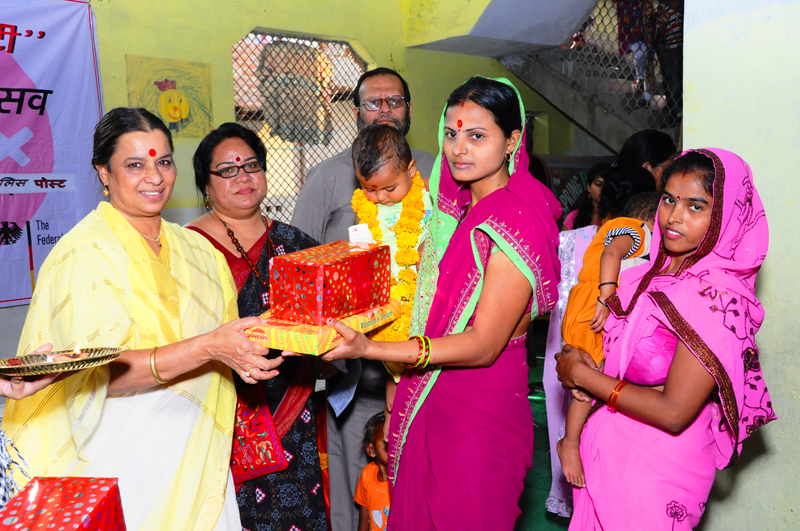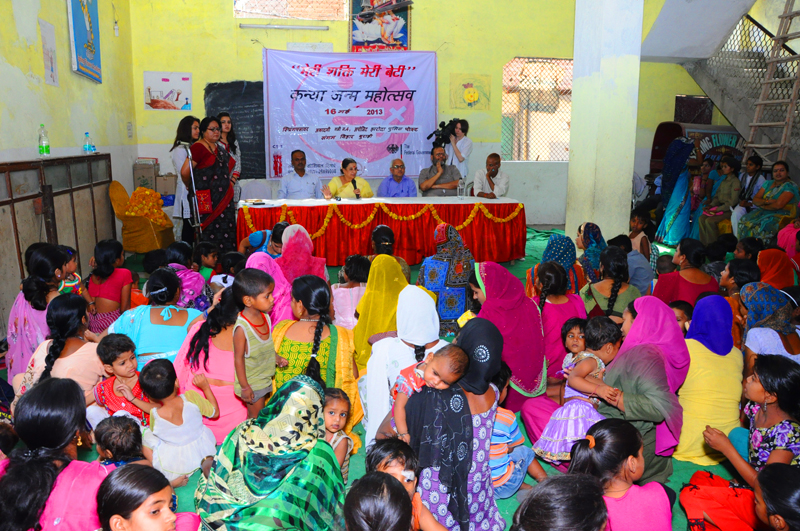Throughout my pregnancy, I underwent many different kinds of ultrasound scans, to determine the growth and development of my unborn baby. After every scan, me and the doctor-in-charge would sign on my report, a part of which stated that during the course of the scan, I was not disclosed the sex of my unborn baby. However, as I was told by friends and family, this is all hogwash. If one pesters the medical professionals enough (and with some under-the-table cash), one can easily find out the sex of their unborn baby.


This echoes with Mrs. Maneka Gandhi’s recent quote regarding stricter implementation of the PC PNDT Act in India. Let us look closely at the data. A report by IBN-Live states that while the child sex ratio in India has reached an alarming low with 918 girls per 1,000 boys in 2011 from 927 in 2001, not much seems to have been done to ensure strict implementation of the Act to deter pre-natal sex selection, and the consecutive abortions of female foetuses thereafter. According to data available with the Health Ministry, only 32 people have been punished in the whole country as against 563 cases reported for conducting sex determination tests between 2011 and 2013. The data goes on to show that only four states have convicted 13 people in 2013. In 2012, eight persons were punished by three states and in 2011, 11 people by four states. Punjab, which has a child sex ration of 895 girls to 1,000 boys, has convicted only two persons in the period while it reported 52 such cases. Haryana with a child sex ratio of 879/1000,registered 54 cases under the Act but no conviction took place. Delhi registered 10 cases but could not manage to punish anyone.


There are a multitude of reasons for this low rate of conviction. Poor implementation of the Act and its provisions is one major cause. The punishment (maximum of 3 years of imprisonment and a maximum of Rs 10,000 as fine) doesn’t work as a strong enough deterrent for many of offenders. Women are often not aware of their rights, with respect to the Act, and do not know the legal procedure to be followed in case they are forced into pre-natal sex selection test, and an abortion thereafter. Dr Manasi Mishra, Head of Research at CSR goes on to say “Like many women-friendly acts in India, the implementation of PC/PNDT Act remains debatable and questionable due to lack of central and state level monitoring and inspection, abysmally low conviction rate, lack of bureaucratic & political will to address the socio-cultural norms and the patriarchal society’s attitude for son preference and daughter discrimination“.
Thus all these aspects need to be taken into account, when working towards stricter and more effective implementation of the Act. Better engagement between legal authorities, medical community and the civil society is the only way to achieve a society with a natural child sex ratio.
Centre for Social Research has been working on the issue of pre-natal sex selection for many years now. Our ongoing campaign, “Meri Shakti Meri Beti” was started with the aim of spreading awareness on pre-natal sex selection and its growing menace. With the continuous support of the German Embassy, MSMB has been able to drive in a wave of positive thinking towards the girl child. This project has completed five phases of this project, spanning about four years, including various public awareness campaigns, creation of “Community Watch Groups”, interface programmes with various experts, social audits in different regions, along with many public celebrations of the girl child, or as we call it, “Kanya Janm Mahotsav”. On 7th May, CSR organized one such Kanya Janm Mahotsav in the Mamta Aanganwadi Center at Jharsa Village, Haryana. At this event, 55 parents of girl children (under the age of 2) were felicitated by CSR.
Looking forward to reading your blogs, you can mail us your entries at WriteWithUs@csrindia.org, or upload them at Write With Us.
Donation for Centre for Social Research to Join our effort in rehabilitating Domestic Violence
Discuss this article on Facebook




